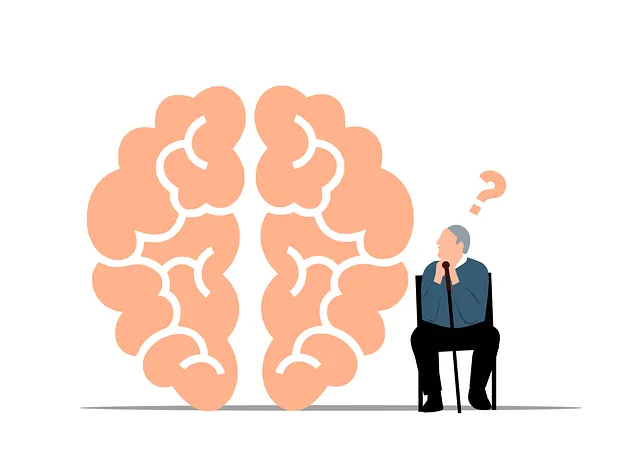Crisis Intervention Teams (CITs) at the Denver Kaiser Permanente mental health center, with structured visiting hours, offer immediate crisis support and focus on training self-care routines and coping strategies for better mental health. Their comprehensive program combines simulations, role-playing, de-escalation techniques, and evidence-based guidance to empower healthcare professionals in handling critical situations effectively. Through these efforts, Denver Kaiser Permanente revolutionizes mental healthcare, fostering community mental well-being and prioritizing stress management through their Mental Wellness Podcast Series.
Crisis Intervention Teams (CITs) play a crucial role in mental health care, providing immediate support during crises. This article delves into the importance of CIT training programs, highlighting successful initiatives like Denver Kaiser Permanente’s approach. We explore key components of effective training, including situational awareness and de-escalation techniques. By enhancing community mental well-being, these programs ensure individuals receive timely, skilled assistance. Inspired by Denver Kaiser Permanente’s model, we discuss the broader impact on access to care during visiting hours at mental health centers.
- Understanding Crisis Intervention Teams: A Vital Resource in Mental Health Care
- Denver Kaiser Permanente: Setting the Standard for Training and Support
- Components of Effective Crisis Intervention Team Training Programs
- Benefits and Impact: Enhancing Community Mental Well-being through Training
Understanding Crisis Intervention Teams: A Vital Resource in Mental Health Care

Crisis Intervention Teams (CITs) are a vital resource in mental health care, offering immediate support during crises. These specialized teams, often composed of trained healthcare professionals, respond to individuals experiencing severe emotional distress or suicidal ideation. At Denver Kaiser Permanente mental health centers, for instance, visiting hours are carefully structured to ensure patient safety and continuity of care, where CITs play a crucial role in managing these sensitive situations.
Beyond acute interventions, CIT training programs emphasize the importance of self-care routine development for better mental health. By equipping team members with coping strategies and resilience-building techniques, these programs enhance their ability to provide consistent, empathetic support. Promoting mental health awareness and advocacy, CITs also contribute to broader mental health policy analysis, pushing for improved access to care and more effective community resources.
Denver Kaiser Permanente: Setting the Standard for Training and Support

Denver Kaiser Permanente stands as a beacon of excellence in crisis intervention team (CIT) training programs. This renowned mental health center has established a comprehensive approach to equipping healthcare professionals with the skills to handle critical situations effectively. By integrating practical simulations, evidence-based strategies, and ongoing support, they set the standard for CIT training across the nation. The program’s success lies in its ability to foster a collaborative environment, ensuring team members from diverse backgrounds gain invaluable experience and knowledge.
In addition to their intensive training, Denver Kaiser Permanente offers ongoing resources through their Mental Wellness Podcast Series Production, which delves into various aspects of mental health awareness and stress management. This initiative reflects the organization’s commitment to not only educate but also empower individuals to navigate life’s challenges with resilience. The center’s dedicated efforts have significantly contributed to improving crisis response capabilities while promoting holistic mental wellness within communities they serve, as evidenced by visiting hours at their mental health centers.
Components of Effective Crisis Intervention Team Training Programs

Effective crisis intervention team (CIT) training programs are multifaceted and comprehensive, integrating various components to equip mental health professionals with the skills needed in high-pressure situations. At Denver Kaiser Permanente mental health center visiting hours, for instance, CIT training often emphasizes practical, hands-on exercises that simulate real-world crises. This includes role-playing scenarios to enhance empathy and communication, allowing team members to practice de-escalation techniques and crisis resolution strategies.
The programs also delve into crucial aspects such as risk management planning, mental wellness journaling exercises for self-care, and evidence-based guidance for handling diverse patient populations. Mental health education programs designed with these elements in mind foster an environment where professionals can learn, grow, and support one another. This holistic approach ensures that crisis intervention teams are well-prepared to navigate complex situations, ultimately enhancing patient safety and outcomes.
Benefits and Impact: Enhancing Community Mental Well-being through Training

Crisis intervention team training programs play a pivotal role in enhancing community mental well-being by equipping individuals with the skills to recognize and respond effectively during times of crisis. These programs, often offered at institutions like the Denver Kaiser Permanente mental health center (visiting hours may vary), foster an environment where self-awareness exercises are integral to developing empathy and understanding among team members. By participating in such training, community members gain valuable insights into managing stress, anxiety, and other mental health challenges, leading to improved public awareness campaigns development.
The impact extends beyond individual growth; it permeates the broader community. Trained crisis intervention teams can quickly assess situations, provide immediate support, and de-escalate potential emergencies. This proactive approach not only reduces the strain on emergency services but also ensures that individuals in need receive timely care. Through regular training sessions and ongoing education, these teams remain equipped to handle a wide range of scenarios, ultimately contributing to a more resilient and mentally robust community where mental wellness is prioritized and supported.
Crisis intervention team (CIT) training programs, as exemplified by Denver Kaiser Permanente’s comprehensive approach, play a pivotal role in enhancing community mental well-being. By focusing on evidence-based practices and fostering collaborative care models, these programs equip healthcare professionals with the skills needed to effectively navigate crisis scenarios. The benefits extend far beyond individual patient outcomes, contributing to safer communities and improved access to quality mental health services. For those interested in exploring this initiative further, visiting the Denver Kaiser Permanente mental health center during their extended visiting hours can offer valuable insights into the practical application of CIT training.






